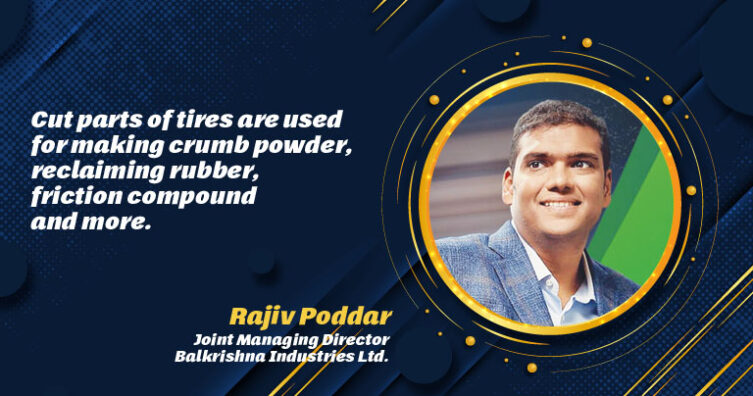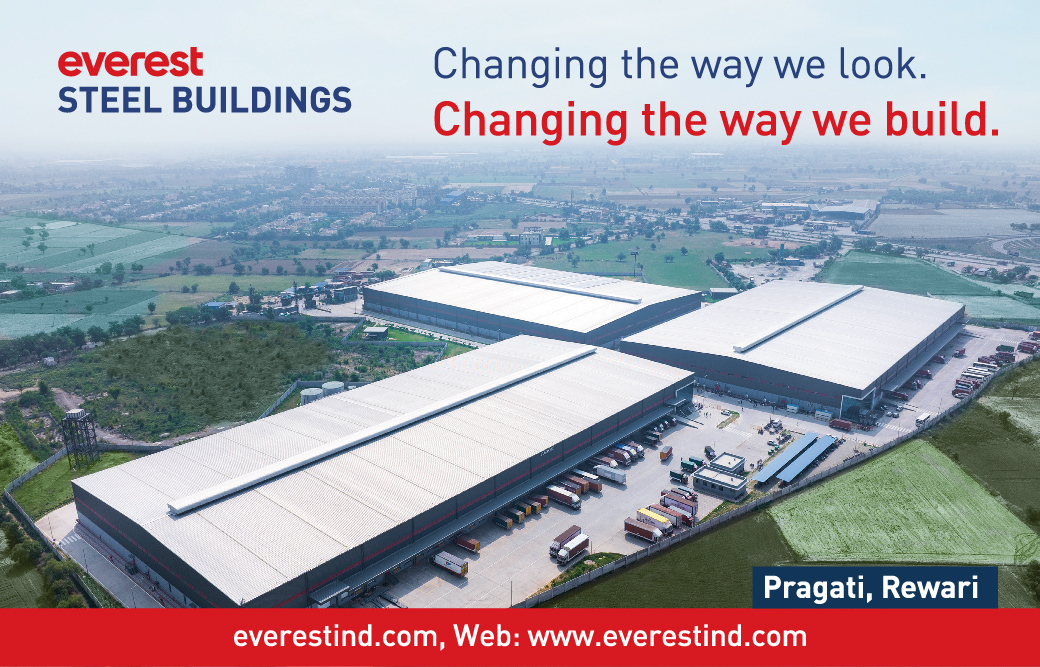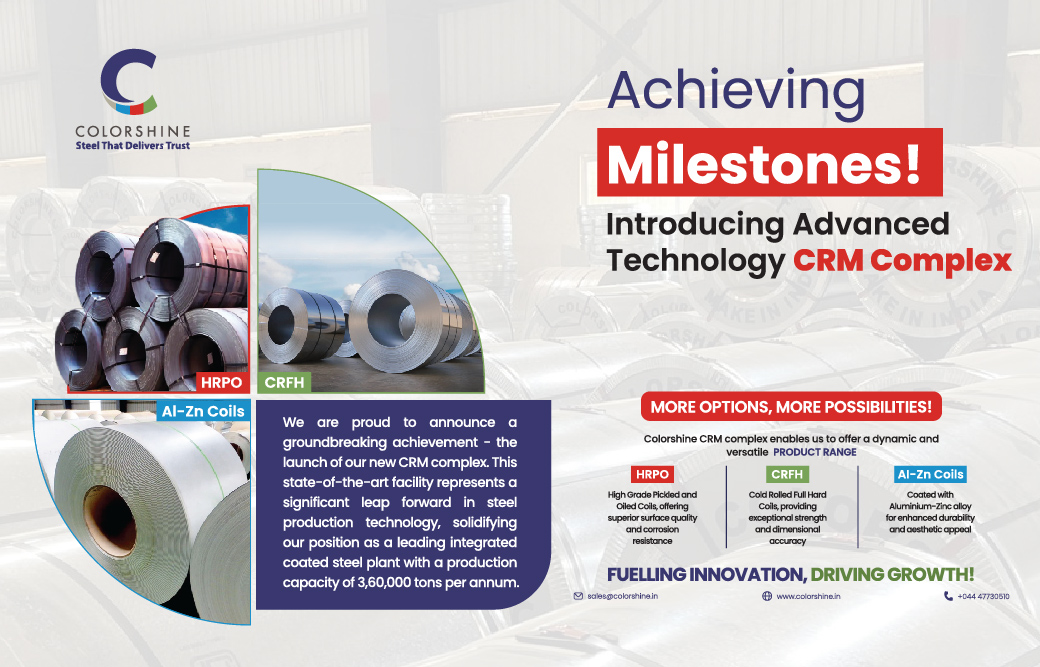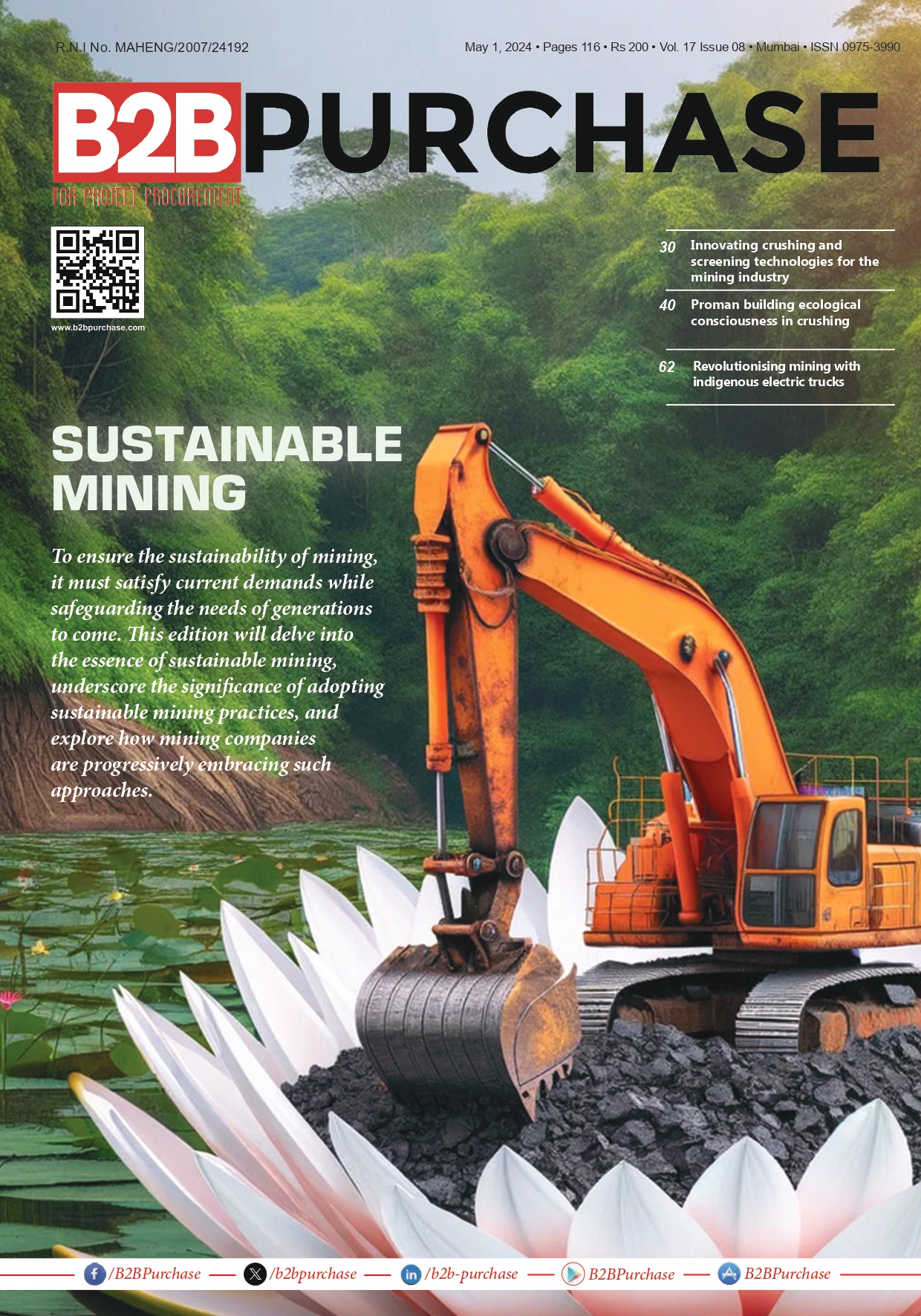India’s OTR businesses have embraced policies for running the business responsibly. The segment is working to ensure sustainability penetrates all aspects of the business, from production to shipment. Rajiv Poddar, Joint Managing Director, Balkrishna Industries Ltd., talks about how the company’s waste, except hazardous materials, has helped them reduce our waste by 14.9 percent in the past three years.
What unique features of your OTR range present a cutting edge?
Our secret is that we are a focused company catering to a niche segment, i.e Off-Highway Tires segment, and we work with a motto – ‘Right Tire for Right Application’. We understand the users’ specific requirements, the type of terrain on which they operate, the type of loads and temperatures required, the operating conditions, and the particular challenges for the job and provide solutions not only in the form of tires but also services. Along with this focus, our main objective is to provide the highest quality products and to reach our goal. We put a lot of emphasis on R&D, continuous upgrades of products and equipment at all our plants, adoption of new technologies, vertical integration – meaning manufacturing raw materials in-house, and, most importantly, strict quality checks at every stage of the process of tire manufacturing. Our tires have to undergo intensive 500 quality checks per product cycle. Our tires use a unique design, each curated individually for different purposes.
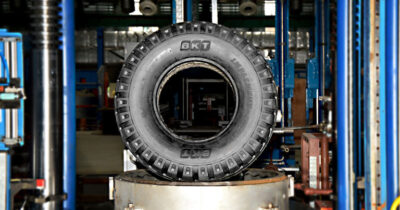
How are you coping with the sustainability requirements in the infrastructure business?
As rightly said, sustainability initiatives spark innovation and environmental progress s sustainability requires companies to go beyond ordinary compliance with the law. Especially for the tire industry, sustainability isn’t a cakewalk, as tires re one of the polluting auto parts. The only way forward, therefore, is to focus on green manufacturing processes such as minimising consumption of natural resources and reducing CO2 emissions.
As a global company, BKT has always been a value-driven organisation with a strong core belief encompassing people, the planet, and prosperity. We are committed to performing our operations environmentally conscious and socially responsible. At BKT-we have undertaken proactive initiatives to drive long-term sustainability and have constantly been taking measures for the conservation and optimal utilisation of energy in all areas of operations at the company’s plants. Within the company, there are continuous efforts towards minimising consumption of natural resources, ensuring zero discharge of waste, and reducing water, energy and CO2 missions, thus improving operational efficiencies BKT was the first tire company to adhere to the reach compliance environmental requirement of the European Union way back in 2009. Some of the initiatives carried out are mentioned below:
• 1 MW rooftop solar power plant to use renewable energy at Chopanki and Bhuj Plant;
• Use of VFDs in major motors to reduce energy consumption;
• Audits to correct air
• 100 per cent recycling of wastewater – all our plants are certified zero liquid discharge facilities;
• focusing on green belt creation at all our plants;
• installation of gas-fired boilers through which the emissions have further reduced substantially;
• promote the use of industrial recycling of waste like reclaim rubber, crumb powder, and rubberised friction compound
• Partnering with Kultevat, a leading US biotechnology company specialised in the cultivation and processing of Russian dandelion (TKS) as a renewable and sustainable alternative for natural rubber.
How do you assure quality standardisation in your supply chain?
Quality product is one of BKT’s key competencies, which we’ve dedicated resources toward for many years and permeates every process and detail. For example, having in-house manufacturing of carbon black, a key raw material used in manufacturing tires, provides us with significant autonomy and ensures enhanced quality control throughout the entire supply chain. Additionally, our in-house mould design and production unit facilities are instrumental, enabling us to have production flexibility in the production cycle, resulting in a faster concept-to-market product rollout.
Moreover, we use only high-quality raw materials processed through the most advanced and developed technology. Most of all, it is due to robust and stringent quality control mechanisms in place, which facilitates a qualitative offering at a constant pace. The supply stands rejected if raw material test data do not meet our quality standards. Each of our products passes over 500 stages of tests right from the raw material procurement stage to the final product. So ultimately, quality is more critical. The result of this rigorous practice is that BKT products are known for their reliability and have the lowest claim ratio in the industry.
What trends do you see in the industry for recycling?
With changing market dynamics and regulations, the tire industry is persistent in embracing policies for running the business responsibly. More so, the industry is working towards avenues to ensure ‘sustainability’ penetrates throughout all aspects of the business, from production to shipment of the final product. At BKT, we have worked assiduously to ensure a downward trend in our waste by reusing and recycling the waste products in our plants. We have implemented a disciplined waste management system, which includes recycling and reuse. This helps us maintain a systematic collection of scrap and safe waste storage/ disposal and reuse. Additionally, we ensure that all the waste, be it in-process or non-processable (i.e. finished goods), is recycled through our resellers. In-process material work-away at the green stage is reused in different stages of the manufacturing process, as per technical guidelines. More so, we use industrial recycled waste in the form of reclaim rubber, crumb powder, and rubberised friction compound. Recycling most of the waste produced, except hazardous materials, has helped us reduce our waste by 14.9 percent in the past three years.
We are continuously working towards taking drastic measures to integrate sustainability and protect the environment for our future generations.
Do you notice any shift in this industry’s procurement (of raw materials) pattern?
The after-effects of the pandemic, coupled with the geopolitical situation, created unprecedented supply chain-related disruptions impacting pricing and raw materials availability. Logistics and freight availability shortages were also a cause for concern across industries.
Due to the high demand for all the major raw materials and the shutting down of some raw material manufacturers, the prices and the supply have adversely affected the industry.
These changes are occurring throughout the industry and will majorly impact our business. Hence our backward integration program of setting up carbon black manufacturing facilities and a captive power plant has proved to be a boon and has augmented the supply of critical raw materials in the present circumstance. As you are aware, carbon is a major raw material, and now, approximately 100 percent of this requirement is met from within our plants.
What are the possible applications of reusing recycled waste materials?
Recycling waste material from tires involves the conversion of waste tires into materials we can use to create new products. A BKT cut parts of tires are used for making crumb powder, reclaim rubber, friction compound, etc., which are reused within the tire production at our plants. Additionally, the plastic/polythene scrap generated is reused by converting it into plastic granules. Our R&D is constantly looking into more ways to reuse and recycle waste materials to help preserve the environment.
Cookie Consent
We use cookies to personalize your experience. By continuing to visit this website you agree to our Terms & Conditions, Privacy Policy and Cookie Policy.
